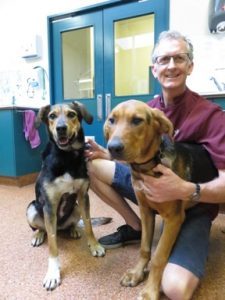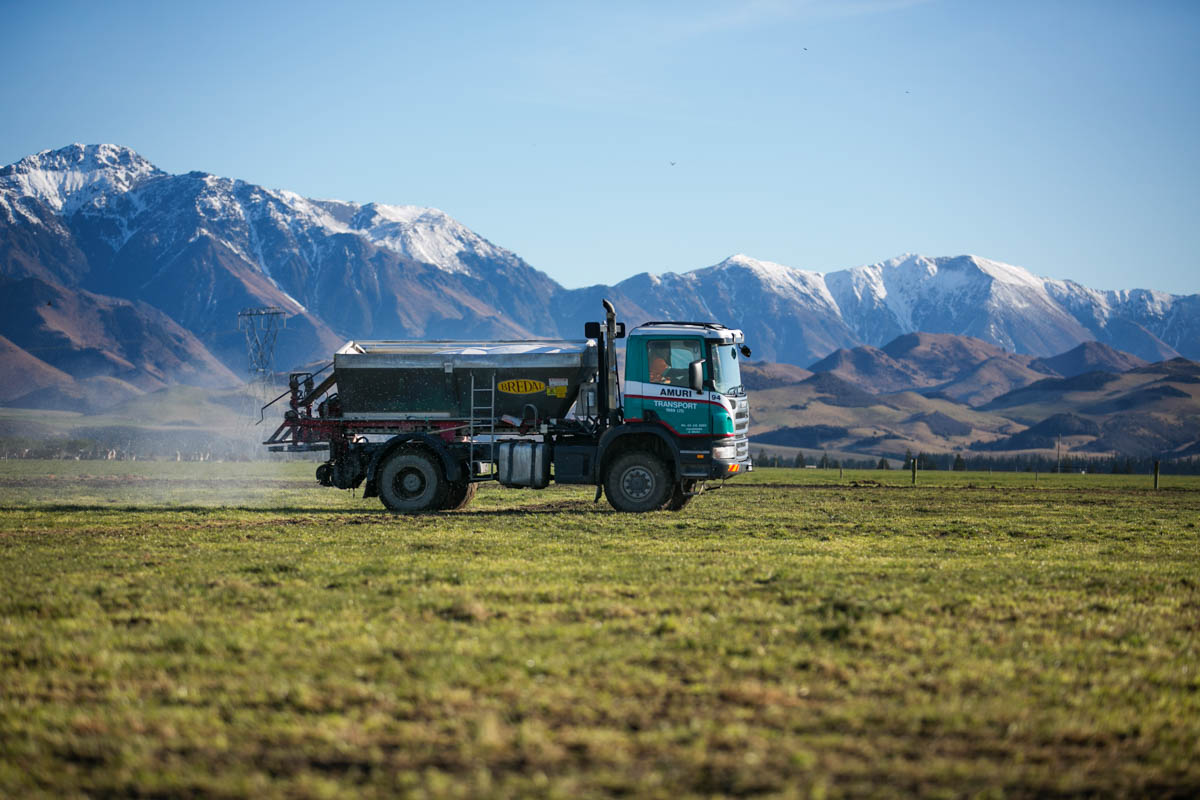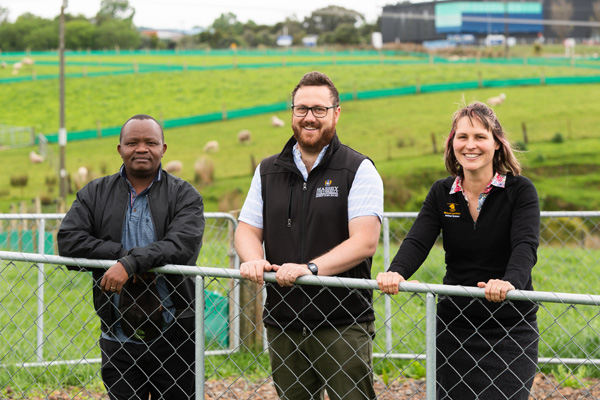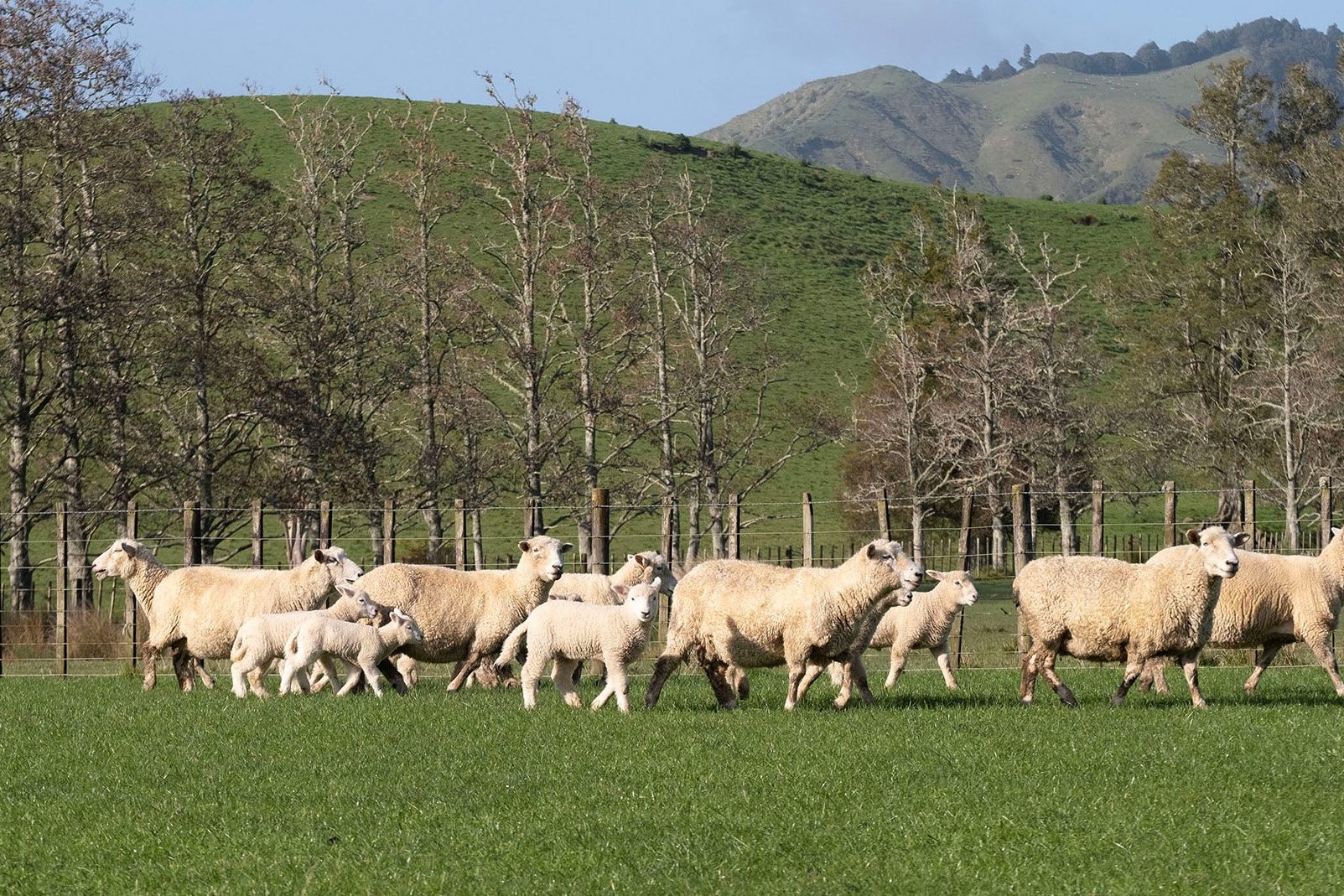Annabelle Latz
Shell, Chloe, Lou, Coco, Fi, Juno, Tilly, Ziggy, Lass and Tane love running the rolling country of Kaituna Ridges, the 960-hectare steep sheep and beef property in northern Marlborough, which they call home.
Day-in day-out they work the land, helping their owners Muff and Paul Newton run their 4500 predominantly Romney ewes, and 200 head of cattle – historically Angus but getting more into the Hereford side of things.
There is also a farm tourism business involving sheep dog demonstrations, and the organisation of the local and centre championships for dog-trialling competitions this upcoming season.
The Newtons are entering their second year with Working Paws – a marketable tool designed for farmers to assess and monitor the overall health of their dogs; a crucial cog of most farming businesses.
Muff says the farm visits and assessments really changed the relationship they have with their vet, who they work closely with to maximise the form of their dogs and prevent illness and injuries, rather than only work with in times of strife.
“This is really a bit of a mind change for farmers; preventing rather than waiting for issues,” Muff says.
These canines may not know it, but they have something big in common with the All Blacks; they are all elite athletes.
‘We put a lot of effort into ensuring all other stock on the farm have dedicated animal welfare systems, so it makes sense to do the same for our dogs.’
Marlborough-based veterinarian Stuart Burrough is the developer of Working Paws and director of The Vet Company and The Vet Centre Marlborough.
A huge advocate for quality working dog nutrition and health, Burrough likes to use the All Blacks analogy.
“You wouldn’t expect the All Blacks to perform without excellent nutrition, so neither should your working dogs,” he says.
The loyal heading dog and huntaway will start working as a one-year-old, and a successful career will span nearly a decade, with these hard workers running up to 30km a day at busy times of the year.
With the right care and nutrition, these dogs could delay hanging up their working collars for another one or two years.
“An average team is 10 dogs, which is over $30,000 worth. That is a very valuable asset,” he says.
Dog coats, quality kennelling, and a focus on the right protein and fat levels in a dog’s diet are all topics now commonly chatted about among farmers and their vet.
Burrough sees Working Paws as the opportunity to take the well-known and utilised annual vaccination and head-to-tail assessment a step further – to also carry out an onfarm assessment and capture all this annual data.
“It’s about maintaining health and wellness, rather than waiting for problems.”
Orthopaedic and dental assessments, skin health, eyes, heart, ears, abdomen, body condition score, and nutrition are all looked at, then the information is put on a template and emailed to the farmer.

Monitoring kennel temperatures helps to establish the importance of coats at night.
“If dogs are restless to keep warm this burns up energy.”
Burrough says a lot of farmers are using these now, the nylon exterior and fleece-lined layers now a common sight on farms and at dog trials.
He has worked closely with Massey University Associate Professor in Small Animal Medicine and Nutrition Nick Cave, and says attention to quality nutrition means fewer physical injuries.
Late summer and early winter are the best times to catch up with farmers, when the job list onfarm is a little less hectic.
There are two other similar working dog health programmes in New Zealand, and overall Kiwi farming is embracing ideas and issues involving their best four-legged mates.
“The Hilux gets a service, so should the dogs,” Burrough says.
The numbers of farmers taking up Working Paws is going steadily.
“It comes down to attitude, rather than an age thing… there is always changing attitudes towards dog health.”
The 10 working dogs at Kaituna Ridges have always been very well looked after – they are worked or run every day, and at night are put to bed in their spacious, clean kennels with plenty of shade and shelter and fresh water. Sleeping mats and wearing a coat in the cooler months is a bonus that further ensures these dogs get good rest.
“We were keen to be up to speed with any animal welfare issues relating to the dogs,” Paul says.
A big homecoming was last year when their very good heading bitch needed two canine teeth removed, something picked up at the medical.
“We were able to get her into surgery and have them removed much earlier than we would have if the vet hadn’t picked it up… We put a lot of effort into ensuring all other stock on the farm have dedicated animal welfare systems, so it makes sense to do the same for our dogs,” Muff says.
“Our dogs are invaluable for the farm business, we could not run the property without them. We love our dog work and especially enjoy the early morning and evening musters on the big hill blocks,” Paul says.




